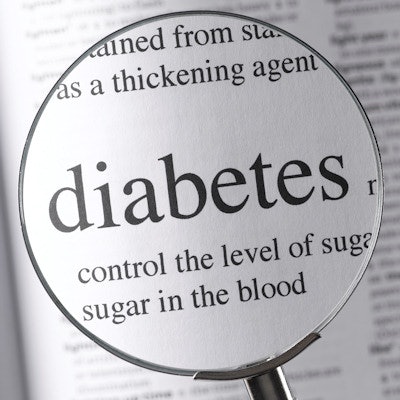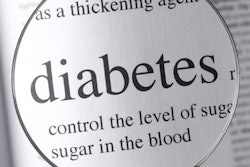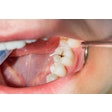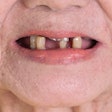
Is there a link between missing teeth and a patient's risk of developing diabetes? The findings of a new study, presented in a poster on March 19 at the 2018 Endocrine Society annual meeting, suggest there is.
Researchers studied the records of more than 9,600 U.S. adults examined by dentists during the 2009-2014 National Health and Nutrition Examination Survey (NHANES). They found a progressive increase in the number of patients with missing teeth as their glucose tolerance declined.
"Our findings suggest that dental exams may provide a way to identify someone at risk for developing diabetes," lead study author Raynald Samoa, MD, stated in an Endocrine Society press release.
Dr. Samoa is an assistant professor in the department of diabetes, endocrinology, and metabolism at City of Hope National Medical Center in Duarte, CA.
Increased risk of diabetes
The link between periodontal disease, dental caries, and an increased risk of diabetes was first suggested in the 1930s, and an estimated one-third of U.S. residents may be affected by diabetes by 2050, the researchers noted.
“Our findings suggest that dental exams may provide a way to identify someone at risk for developing diabetes.”
To see if missing teeth are connected to a decline in glucose tolerance, the researchers conducted a cross-sectional study on the impact of glucose tolerance on dental health using the NHANES data. They analyzed patients' reported body mass index and glucose tolerance states by fasting plasma glucose, two-hour postchallenge plasma glucose, hemoglobin A1c, established diabetes, and whether the condition was treated with oral agents or insulin.
The researchers recorded the numbers of missing teeth caused by caries and periodontal disease for individual patients. They then determined the relationship between glucose tolerance and dental condition by considering a patient's age, gender, racial and ethnic group, family history of diabetes, smoking status, alcohol consumption, education, and poverty index.
Researchers divided the patient data into three groups:
- Patients with normal glucose tolerance
- Patients with abnormal glucose tolerance
- Patients with diabetes mellitus
The researchers reported an increase in the percentage of patients with missing teeth as glucose tolerance declined:
- Nearly 46% of patients with normal glucose tolerance were missing teeth (average, 2.3 teeth).
- Almost 68% of those with abnormal glucose tolerance were missing teeth (average, 4.4 teeth).
- Close to 83% of patients with diabetes mellitus were missing teeth (average, 6.8 teeth).
Except for gender, all other covariates had a significant impact on the number of missing teeth, the researchers found.
Progressive positive relationship
As for study limitations, the researchers conducted a cross-sectional study from existing data.
A causal relationship could not be inferred from the data, but there is a progressive positive relationship between worsening glucose tolerance and the number of missing teeth, according to Dr. Samoa.
"[The study] demonstrates that poor dental outcome can be observed before the onset of overt diabetes," he stated.



















